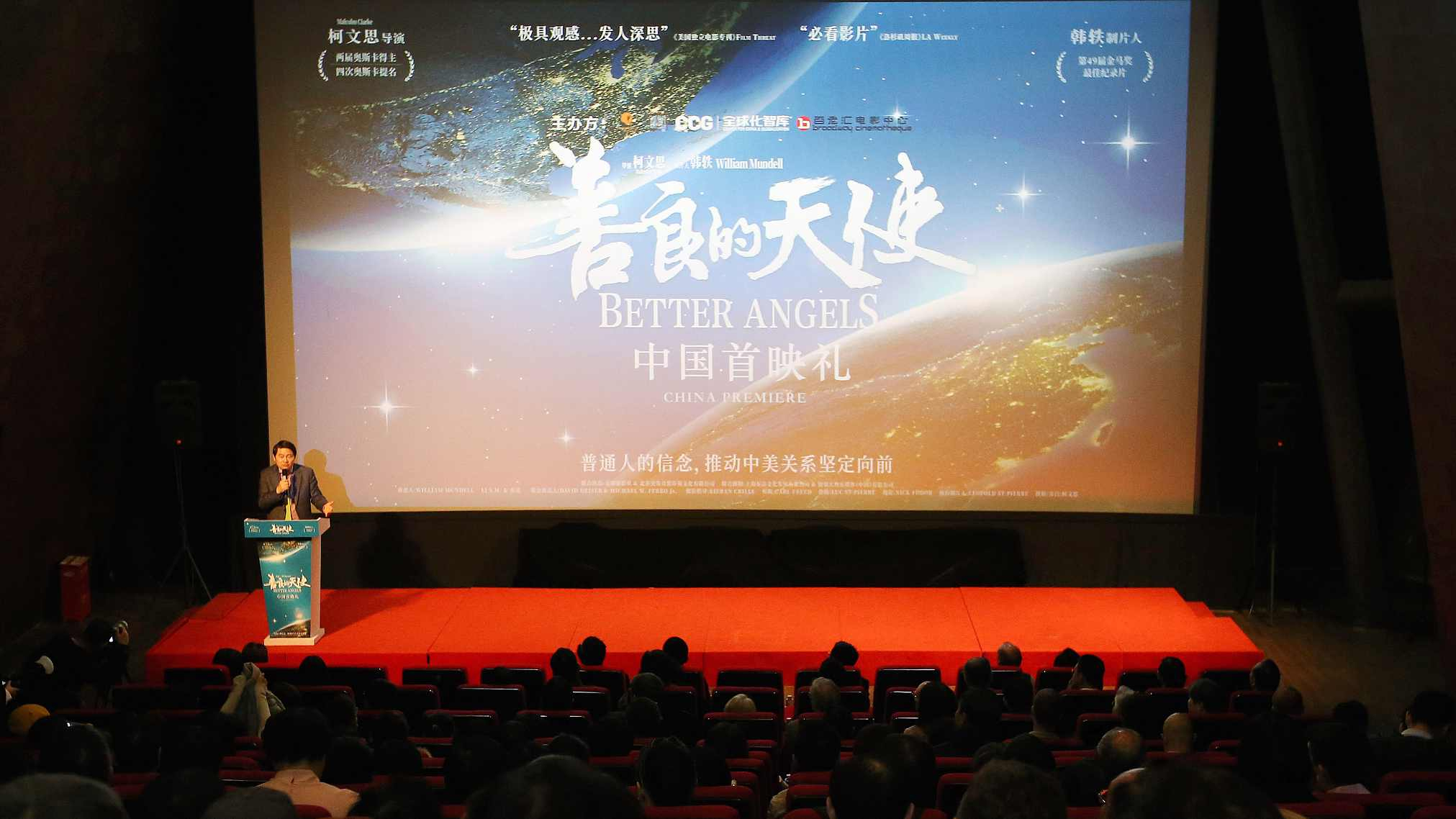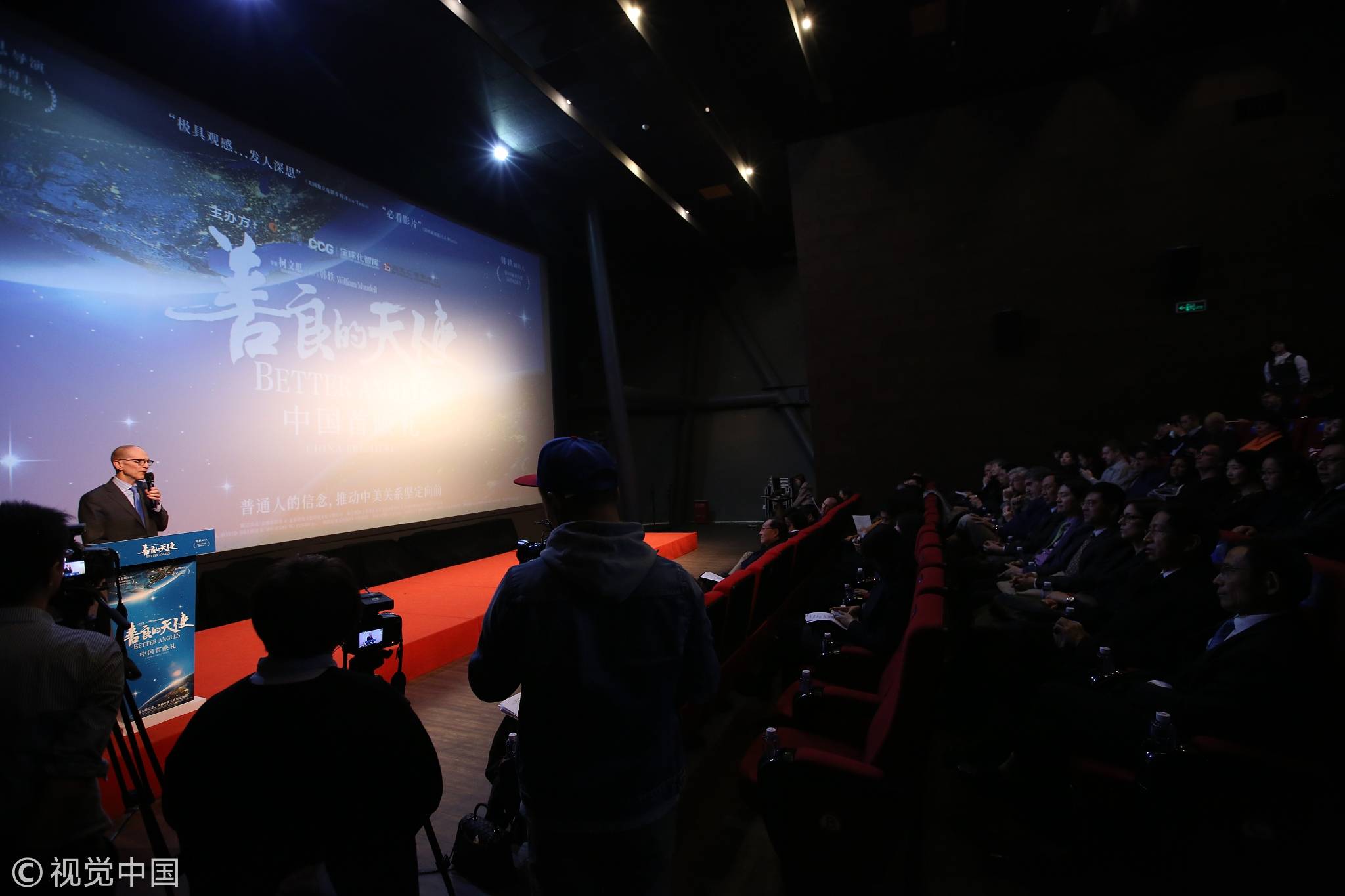
Films
17:14, 26-Nov-2018
How we see each other – 'Better Angels' expected to help improve mutual understanding
Updated
16:43, 29-Nov-2018
Qi Jie
03:54

"Better Angels", a new feature documentary directed by two-time Oscar winner Malcolm Clarke, will soon be released in both China and the United States. It focuses on relations between the two countries, through the lives of ordinary people in both. Our reporter Qi Jie got the chance to attend the Beijing premiere and learned a lot from a post-screening discussion.
From blue-collar workers to business icons and former statesmen, the 90-minute film features interviews with dozens of people, revealing more under-reported issues about China.
The film took five years to make, with the crew traveling around 20 countries across four continents, and is expected to help dispel some myths that Americans and Chinese have about each other.
After the premiere screening, some key members of the production team, who are from China, the United States, Canada, and the United Kingdom, shared their initiative, their care and their hope with the Chinese audience.
Director Malcolm Clarke spoke of his experiences in China back in 1981.

"Better Angels" premieres in Beijing, November 25, 2018. /VCG Photo
"Better Angels" premieres in Beijing, November 25, 2018. /VCG Photo
"The cities were very poor, and people were very poor. But people were working very hard. It was very clear to me because I traveled all over China," said Clarke, "This is a country that is going [to be] unstoppable. I thought it would take a hundred years at least."
When it comes to the driving force behind his effort to tell the world about China, Clarke is very straightforward.
He said, "One of the reasons I'm in China now making films is that I think China is not doing a good enough job of explaining this extraordinary miracle that just happened. I do feel sad, and I also feel it's dangerous because what we don't understand, we fear. We don't understand China in the West."
They were not just after true stories, but true stories that touch the heart. Han Yi, one of the producers of "Better Angels", said, "What we are trying to do in this film is to tell the audience the true potential in China-U.S. relationship. If you look through the eyes of ordinary Chinese and ordinary Americans, they don't see each other as enemies. We hope that this could show the rest of the world that there's another China which has not been heard and not been seen so often in the western media."
The cultural gap cannot be narrowed, much less bridged, overnight. But all efforts to ease tensions, fears, and even conflicts caused by misunderstanding and ignorance deserve praise.
The late American President Woodrow Wilson once said, "Interest does not tie nations together; it sometimes separates them. But sympathy and understanding do unite them." "Better Angels" embraces this philosophy, and sets a powerful example for media professionals both in China and all over the world in how to develop more people-oriented products that can enhance the understanding among different cultures from all corners of the world.

SITEMAP
Copyright © 2018 CGTN. Beijing ICP prepared NO.16065310-3
Copyright © 2018 CGTN. Beijing ICP prepared NO.16065310-3